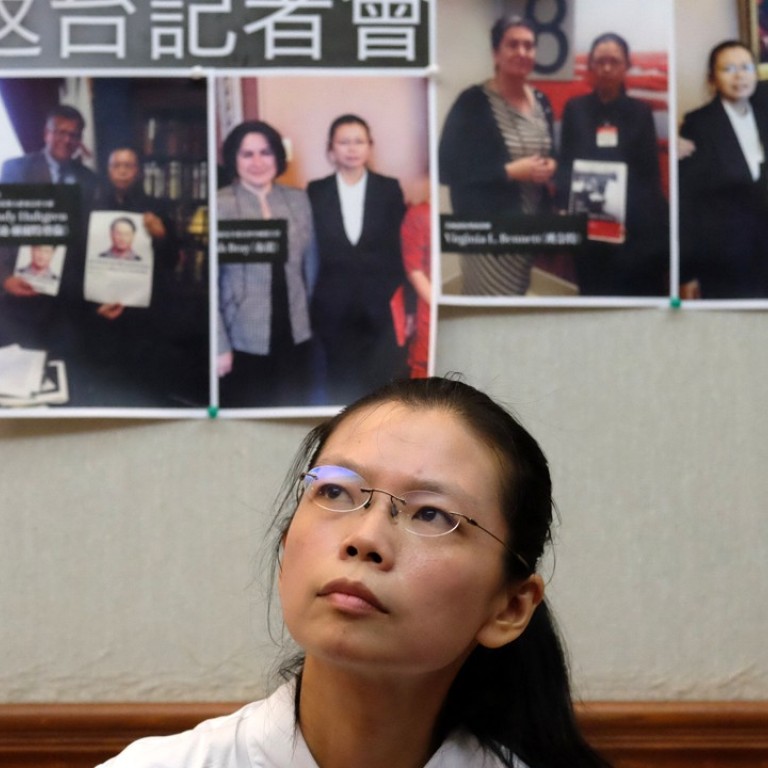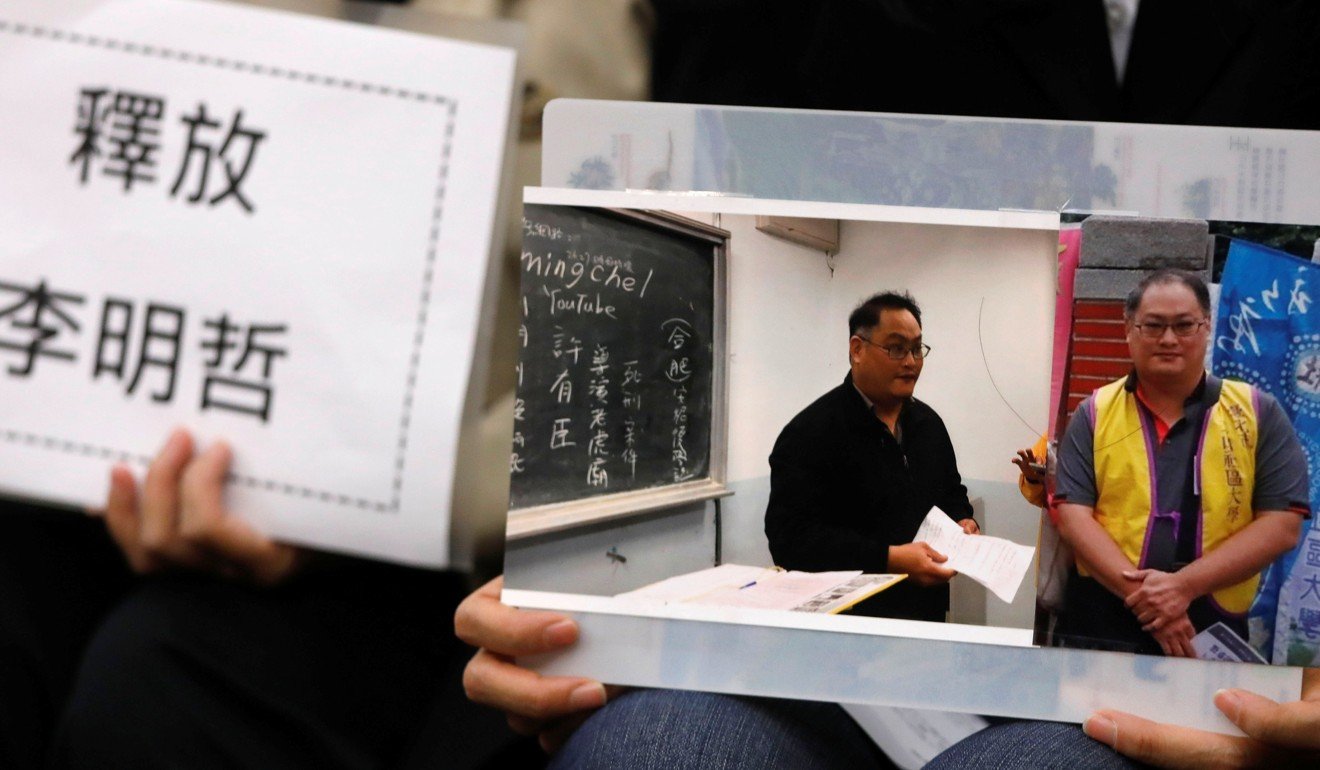
Taiwanese activist arrested for alleged subversion in mainland China
Taiwan’s Mainland Affairs Council says Beijing has not given any concrete evidence to support the allegations against Li Ming-che
Taiwan’s ruling party on Saturday accused Beijing of conducting a “black box” hearing against Taiwanese human rights activist Li Ming-che on subversion charges, and has called for his case to be heard in public.
“The Chinese authorities should disclose all the evidentiary information and openly hear the case with the attitude of a civilised state, rather than dealing with the case as a black-box operation,” the Democratic Progressive Party (DPP) said in a statement.
On Friday night, mainland authorities announced the official arrest of Li on charges of subversion, in a case observers say will entrench a cross-strait stand-off.
On the mainland, criminal suspects are detained while a preliminary investigation is held. Only when sufficient evidence is gathered for a court case is the suspect formally arrested.
Li, who has been held by authorities since he entered the mainland from Macau on March 19, could become the first Taiwanese to be charged with the crime, which carries a maximum penalty of life imprisonment.
“With the approval of prosecution authorities, Taiwan resident Li Ming-che was recently arrested by security agencies in Hunan province on suspicion of subverting state power,” said An Fengshan, spokesman for the mainland’s Taiwan Affairs Office.
An claimed that Li had frequently visited the mainland since 2012, collaborating with individuals to set up illegal organisations and to organise and carry out seditious activities to try to overthrow the political system.
“Li and others have confessed that they had engaged in activities endangering national security,” he said.
Taiwan’s Mainland Affairs Council said Beijing had failed to give concrete evidence that Li was involved in subversion.
“Such allegations not only fail to convince the Taiwanese public, but also international groups concerned about the case,” the council said.
It urged mainland authorities to release any evidence immediately and allow Li’s relatives to visit him on the mainland in line with a cross-strait agreement on fighting crime.
Li, 42, a rights activist and a former employee of the independence-leaning DPP, went missing on March 19 immediately after he entered Zhuhai from Macau.
A friend who was supposed to meet Li at the customs checkpoint on the mainland side waited four hours without seeing him, according to his wife, Li Ching-yu.
Beijing finally admitted last month Li had been held for investigation into his alleged activities.
Li Ching-yu said that unlike other activists, her husband was “low key” and had merely exchanged ideas on democracy with friends made on WeChat. She said her husband travelled to the mainland once a year.
Li Ching-yu later sought help from both the Taiwanese government and international human rights groups, including those in the United States, hoping they could help pressure Beijing to release her husband.

Beijing considers Taiwan a mainland province subject to eventual union, by force if necessary.
But analysts said it was rare for mainland authorities to arrest Taiwanese human rights activists and charge them with subversion.
“Usually charges like that are meant for Taiwanese facing allegations of spying, or mainland dissidents protesting against mainland authorities over human rights abuses,” said Wang Kung-yi, a professor of international relations and strategic studies at Tamkang University in Taipei.
Phoenix TV commentator Song Zhongping said Li’s case was simply a criminal case of someone jeopardising the mainland’s national security.
“It does not matter which country, region, or political party he is from. If he violated the law and he should be punished, then he will be punished,” Song said.
“In any country, such cases would be dealt in this way. It’s not specifically targeting him or the DPP or the Taiwan authorities.”
Taiwanese authorities, including President Tsai Ing-wen, have repeatedly called on Beijing to release Li.
Ties have been strained since Beijing suspended talks and exchanges with Taipei shortly after Tsai took office in May last year. She has refused to publicly acknowledge the one-China principle, which Beijing says is a political basis for talks and exchanges.
Additional reporting by Reuters and Liu Zhen

